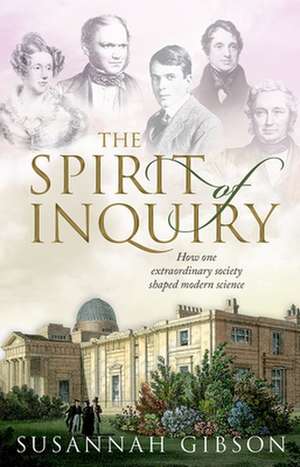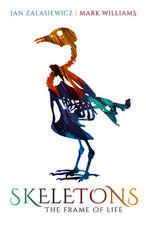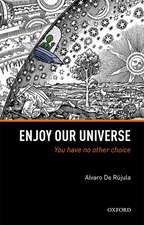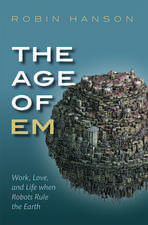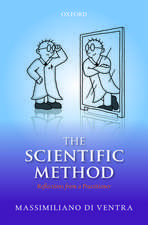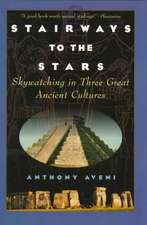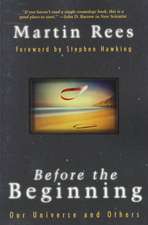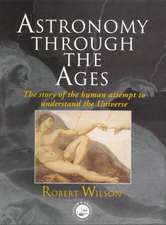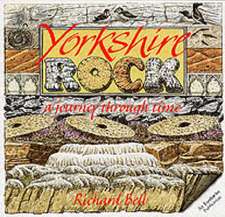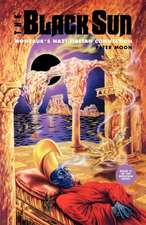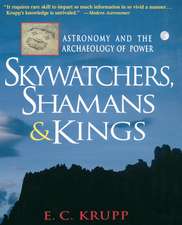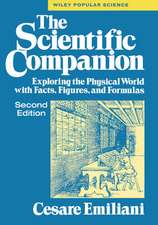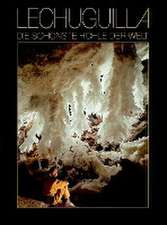The Spirit of Inquiry: How one extraordinary society shaped modern science
Autor Susannah Gibsonen Limba Engleză Hardback – 28 feb 2019
Preț: 147.69 lei
Preț vechi: 187.01 lei
-21% Nou
Puncte Express: 222
Preț estimativ în valută:
28.26€ • 29.33$ • 23.62£
28.26€ • 29.33$ • 23.62£
Carte disponibilă
Livrare economică 11-17 februarie
Livrare express 11-15 februarie pentru 78.28 lei
Preluare comenzi: 021 569.72.76
Specificații
ISBN-13: 9780198833376
ISBN-10: 0198833377
Pagini: 400
Ilustrații: 56 black and white images and a 4pp black and white plates section
Dimensiuni: 162 x 242 x 35 mm
Greutate: 0.66 kg
Editura: OUP OXFORD
Colecția OUP Oxford
Locul publicării:Oxford, United Kingdom
ISBN-10: 0198833377
Pagini: 400
Ilustrații: 56 black and white images and a 4pp black and white plates section
Dimensiuni: 162 x 242 x 35 mm
Greutate: 0.66 kg
Editura: OUP OXFORD
Colecția OUP Oxford
Locul publicării:Oxford, United Kingdom
Recenzii
Gibson has thoroughly filleted the archives and she tells a richly fascinating history. Her book is an excellent example of everything that public outreach should be: accessibly priced, informative, and entertaining.
Reviewing a great book is much like witnessing a blue moon, infrequent but captivating. For me, The Spirit of Inquiry was one such event... This book deserves your time.
A vivid, deeply researched intellectual history.
As part of its bicentenary celebration, the Cambridge Philosophical Society commissioned historian of science Susannah Gibson to tell the story of the Societys foundation, its rise, decline and resurrection. She has managed the difficult task of bringing together the many different strands, which were part of the wider story of the development of science, and made it very readable.
Whether your particular area of interest is in the history of science, of Great Britain, of women in science, of intellectual history, or you [...] would simply reading enjoy an well-written, intelligent book that will significantly enlarge your understanding of the world in which we presently live by coming to know the stories behind some of the truly brilliant people who have formed the ideas and created so many of the technologies that make modern society possible, I highly recommend The Spirit of Inquiry to you.
I loved this book. And if you, too, are fascinated by the history of British science and are interested in Cambridge University, you will too ... Gibson has produced an impressive addition to the history of the development of the science...
How then did Cambridge transform into the world-beater in science of today? That is the subject matter of The Spirit of Inquiry by Susannah Gibson. She weaves a delightful tale about the institution that made it happen...
This is a bicentennial history of which the Society can be proud.
Reviewing a great book is much like witnessing a blue moon, infrequent but captivating. For me, The Spirit of Inquiry was one such event... This book deserves your time.
A vivid, deeply researched intellectual history.
As part of its bicentenary celebration, the Cambridge Philosophical Society commissioned historian of science Susannah Gibson to tell the story of the Societys foundation, its rise, decline and resurrection. She has managed the difficult task of bringing together the many different strands, which were part of the wider story of the development of science, and made it very readable.
Whether your particular area of interest is in the history of science, of Great Britain, of women in science, of intellectual history, or you [...] would simply reading enjoy an well-written, intelligent book that will significantly enlarge your understanding of the world in which we presently live by coming to know the stories behind some of the truly brilliant people who have formed the ideas and created so many of the technologies that make modern society possible, I highly recommend The Spirit of Inquiry to you.
I loved this book. And if you, too, are fascinated by the history of British science and are interested in Cambridge University, you will too ... Gibson has produced an impressive addition to the history of the development of the science...
How then did Cambridge transform into the world-beater in science of today? That is the subject matter of The Spirit of Inquiry by Susannah Gibson. She weaves a delightful tale about the institution that made it happen...
This is a bicentennial history of which the Society can be proud.
Notă biografică
Dr Susannah Gibson is an Affiliated Scholar of the Department of History and Philosophy of Science at the University of Cambridge. She holds a PhD from Cambridge on the history of the life sciences of the eighteenth century, a master's degree in the history of nineteenth-century science, and a bachelor's degree in experimental physics. She is the author of Animal, Vegetable, Mineral? How eighteenth-century science disrupted the natural order (OUP, 2015), which was well reviewed in The Telegraph, The TLS, and The Independent, amongst other publications. She was formerly Manager of the Cambridge Literary Festival, and remains interested in both introducing new audiences to the history of science, and in bridging the gap between academic and popular writing.
